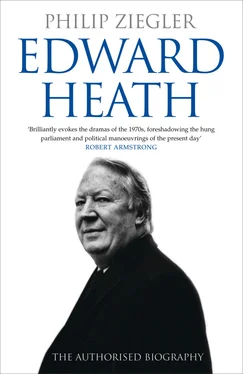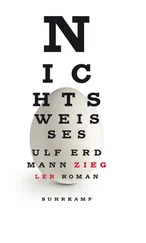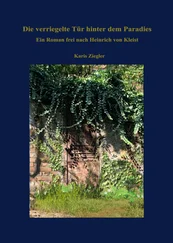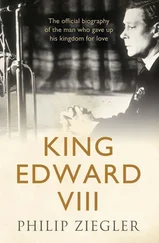The trip to Paris was organised by a Dr Woolf, who included Teddy in the party even though all the other boys were from another school. Teddy – keen, cheerful, friendly, intelligent, deferential without being obsequious – had a capacity for gaining the interest of older men in a way which even the most prurient would have agreed was free of any undertone of sexuality. Another such patron was Alec Martin, a future chairman of the auctioneers Christie’s and a considerable authority on painting. Martin owned a large house in the neighbourhood for whose upkeep William Heath was responsible. He met Teddy, decided the boy was worth cultivating and took to asking him over when there were guests. He remained a friend until he died in 1971. From him Teddy learned to look at and enjoy pictures; he was never to be an expert but he had a good eye and a shrewd collector’s instinct. Martin advised him on his purchases and left him two valuable paintings by Sargent. Through Martin, Teddy met several distinguished painters. One of whom he missed out on, though, was Walter Sickert. In 1934 Sickert bought a home in St Peter’s-in-Thanet. Teddy used to bicycle regularly past his house and often saw paintings hanging on the clothes line to dry, including the celebrated if artistically insignificant portrait of King Edward VIII, painted from a photograph. In this case, though, his charms failed to prevail. Once he took a group of carol singers to Sickert’s house and, after the singers had done their bit, rang hopefully at the front door. After a long pause the door opened a crack. ‘Go away!’ said Sickert. 22
Another elderly admirer brought into his life by his father’s building activities was the rich Jewish solicitor, Royalton Kisch. Kisch was an expert on roses and a considerable amateur musicologist. From the start he decided that Teddy had limitless potential and he was accustomed to say from time to time: ‘That boy will one day be prime minister.’ Arnold Goodman was a frequent visitor who well remembered the youthful Heath as a feature of Kisch’s home. ‘Although he was clearly a very intelligent boy and intensely interested in politics,’ wrote Goodman, ‘I never shared Kisch’s view about his future.’ He told one of Heath’s biographers that he thought Teddy ‘an eager, questing person who was looking for founts of experience; founts of sophistication, founts of knowledge…He was not at all a man on the make.’ What most impressed Goodman was that, when Kisch was a very old man and Heath had become a public figure, Heath went on regularly visiting his old benefactor. ‘Seemingly he never forgot a friend,’ wrote Goodman, adding dryly that this was a quality ‘complemented, some critics may say, by too firm a recollection of his adversaries’. 23
Musical, interested in painting and politics, religiously minded, reasonably well read: by most standards Teddy, when the time came to move on from Chatham House, was a formidably well-rounded individual. He had his limitations. ‘You were always a poor judge of a good film,’ wrote a friend in 1935. ‘Mickey Mouse seems to be the only “actor” who interests you.’ 24He was intellectually unambitious and of limited imagination. Though his essay on Keats was judged to be ‘fairly well done’ there is no evidence that poetry held any joys for him. He paid little attention to the appearance of the buildings or countryside around him. But he was still better informed and had far wider interests than most of his contemporaries. His masters took it for granted that whatever college at Oxford or Cambridge he favoured would be grateful to receive him and would smooth his way with scholarships. The colleges proved to be less enthusiastic.
First, in 1934 he tried for music scholarships at St Catherine’s, Cambridge and Keble, Oxford. Both were denied him. Next he applied for a Modern Greats scholarship at Balliol. Charles Morris, the Tutor for Admissions, asked him what he wanted to do in life. Architecture was by now long forgotten; his most ardent wish, he replied, was to be a professional politician. ‘I don’t think I ever heard any other schoolboy answer a similar question in these terms,’ admitted the Tutor. He was rejected on other grounds. Though his economics were close to being of Exhibition standard, his general work was not so good and his French was lamentable. ‘You will understand,’ the Tutor wrote consolingly to Norman, ‘that it is not so much a question of a candidate being weak in some subjects as of his being sufficiently better than the other candidates.’ Balliol would be happy to accept him as a Commoner. He was still very young, however. If he were to stay on for another year at Chatham House, he might well get an Exhibition. Norman discussed the matter with Teddy’s parents and established that, though they were prepared to keep him at school for another year, they did not think they could possibly afford to send him to Oxford without some kind of scholarship. May 1935 was pencilled in for the next attempt. 25
Teddy, however, grew restive. In January 1935 he wrote directly to the Tutor for Admissions at Balliol. The letter was cautiously phrased but suggested that he was well placed to win a scholarship worth £80 a year to Cambridge. If he was to get an Exhibition or scholarship to Balliol, how much would it be worth? If the purpose of the letter was to enhance his value in the eyes of Balliol, it was unsuccessful. The reply was discouraging. ‘It seems to me that you can hardly afford to take the risk of letting the possibilities at Cambridge go by in favour of an examination in May which (so far at any rate as this College is concerned) has only got one £100 award.’ If an Exhibition worth £40 would give Heath the support he needed, then his chances were obviously better, but even at that level an award was far from being a certainty. 26
Teddy concluded that a bird in the hand was worth more than a – probably pretty speculative – bird in the bush, and decided to stick with Balliol. He duly tried again in May 1935. The bird turned out not to be in the hand after all. Perhaps his extracurricular activities had proved too distracting, perhaps he had grown stale. He did no better in economics and decidedly worse in literature: his essay earned a derisory gamma+. ‘On balance he does not appear to have made any marked advance,’ the Tutor for Admissions concluded depressingly. 27Once more his parents were consulted. In the intervening twelve months William Heath had grown slightly more prosperous, the acclaim for Teddy at Chatham House had become still more fervent: the Heaths decided that, whatever the sacrifice involved, their son must accept the place at Balliol which the college was still happy to offer him. The new term began in October 1935. ‘It will be my last letter to you before you go up,’ wrote his former schoolfriend, Ken Evans, on 1 October, ‘so take my warning. Don’t get drunk at the first dinner, it looks bad.’ 28He was clearly joking. No one who knew Teddy Heath in 1935 could have believed that the advice was necessary.
Balliol in the 1930s was not quite the intellectual powerhouse which it had been before the First World War, but it was still one of Oxford’s leading colleges and as likely as any other to produce the next generation of political leaders. For Heath it had another salient advantage; it was not even slightly smart. Its uncompromisingly ugly architecture and the – by contemporary standards – unusually polyglot or at least polychrome nature of its student body meant that it was derided by the more conventionally snobbish of the undergraduates. The year Heath went up, Korda’s epic Sanders of the River was playing in Oxford cinemas. At one point a canoe-load of ferocious black warriors scudded furiously down the river in pursuit of the fleeing hero. It became a ritual that shouts of ‘Well rowed, Balliol!’ should ring round the auditorium at this point. Such mockery only enhanced the self-esteem of the members of Balliol, whose bland consciousness of their own superiority ensured that they would assume that any hostility was based on jealousy.
Читать дальше












